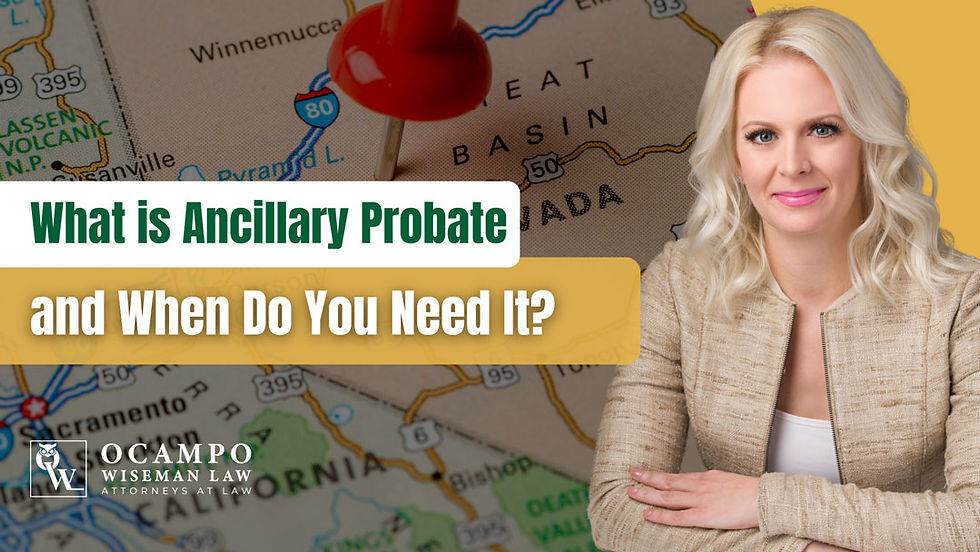Probate is the legal process used to manage and distribute a person’s assets after they pass away.
When probate occurs in a state other than the one where the person lived and passed, it’s referred to as ancillary probate.
Why Is Ancillary Probate Necessary?
To understand ancillary probate, consider the case of someone who lived in Florida but also owned a vacation home in Nevada. Upon their passing, a primary probate, or "main probate," would be conducted in Florida to handle their general assets.
However, Florida doesn’t have jurisdiction over property located in Nevada. For the vacation home in Nevada, the estate must follow Nevada’s probate laws.
This additional process of handling the Nevada property is what we call "ancillary probate."
When Is Ancillary Probate Required?
Ancillary probate is needed when a deceased person owned real estate or other property in more than one state.
Some examples include:
-
A Florida resident who also owned a vacation home in Nevada.
-
A Texas resident who owned land in California.
How to Avoid Probate
If you're looking to avoid the probate process, or if you need assistance with probate in Nevada, consulting with an attorney is a good first step.
Many law firms offer free phone consultations where you can ask questions and receive professional guidance.
You can contact us directly or schedule an appointment online.






